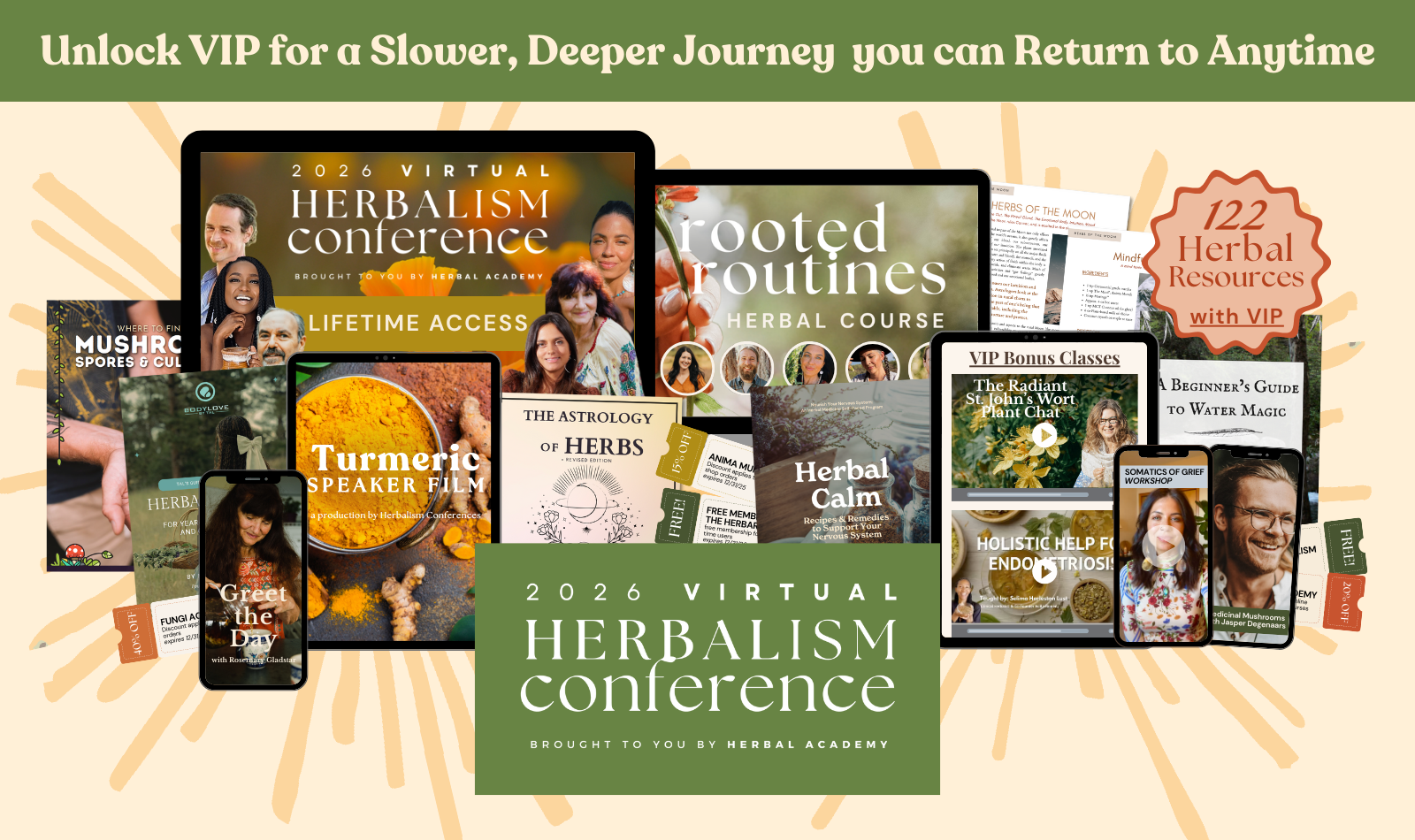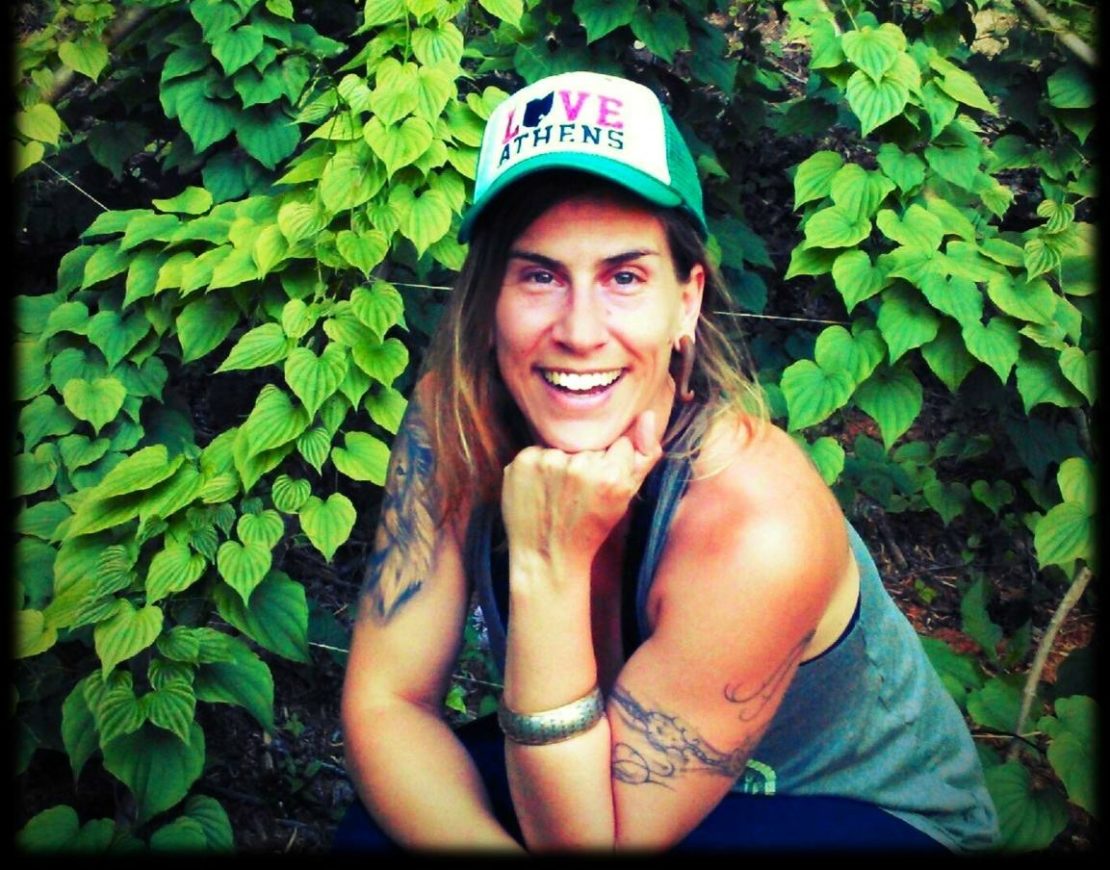
Teacher Feature: Erika Galentin
Erika Galentin is a clinical herbalist and member of the National Institute of Medical Herbalists (NIMH) who studied at the Scottish School of Herbal Medicine in Glasgow, Scotland, before returning to the United States to continue her career.
She is the Course Development Director here at the Herbal Academy and leads our team as we work diligently to create new and exciting educational offerings. It’s amazing to see our ideas transform from vision to high quality courses under Erika’s expert hands.
We were delighted to have Erika sit down with us and share some of her inspiring wisdom about feeling at home in your herbal journey no matter where you are, and tell us more about her own journey from intrigued college student and herbal novice, to United Plant Savers’ Outreach Coordinator, to Clinical Herbalist!
Interview with Academy Course Development Director Erika Galentin
The Herbal Academy: You have a love of the native plants and herbs of Appalachia. What is your history with these herbs? How did you come to be an advocate for their conservation and propagation?
 Erika Galentin: My first exposure to our native ‘At-Risk’ herbal allies, ironically, was when I was training to become a medical herbalist in Scotland. I had never really heard of many of them before. At this time, they were introduced as liquids in a bottle or dried matter in a bag, but we were always cautioned about the decline of wild populations in the U.S. and encouraged to use analogs when possible.
Erika Galentin: My first exposure to our native ‘At-Risk’ herbal allies, ironically, was when I was training to become a medical herbalist in Scotland. I had never really heard of many of them before. At this time, they were introduced as liquids in a bottle or dried matter in a bag, but we were always cautioned about the decline of wild populations in the U.S. and encouraged to use analogs when possible.
During our 4-year degree program, we were required to write detailed monographs or comparative essays for all of the herbs that we covered, and through this research on herbs like goldenseal and false unicorn root, I became ever more fascinated with not only their medicinal prowess, but their ecological complexity. I was hooked, to say the least, and as I kept digging, I came across United Plant Savers and their ‘At-Risk’ and ‘To Watch’ lists.
I was intrigued by the idea that there was an organization specifically dedicated to medicinal plant conservation in the United States. It was like wind in my sails! Forest ecology and horticulture quickly became an additional passion of mine. Several years later, after I decided to return to the U.S., I was studying for a BSc in Horticulture at Temple University and looking for internship opportunities when I checked back with United Plant Savers to see if they had an internship program… which they did!!!
So, I packed up my bags and left Philadelphia for one of the most life-changing experiences I have ever had. Nestled in the foothills of Appalachia in southeastern Ohio, rests the Goldenseal Botanical Sanctuary. Being on that land, in those woods, and with all the people who are involved in caring for the ‘At-Risk’ herbs which thrive there was mind-blowing, to say the least. I couldn’t leave! Appalachia, its plants and its way of life, felt like the home I had been searching for all of my life. So I stayed! And a few years later found myself employed by United Plant Savers as their outreach coordinator.
During this time, I worked closely with Susan Leopold, the organization’s executive director, and really got a taste of the front lines of medicinal plant conservation (harsh territory!). My career has evolved since then, with a focus on returning to clinical practice and teaching clinical herbalism, but my sense of place and connection to our native medicinals continues to deepen. As does my appreciation for the work of Susan Leopold, and others like her, who are tirelessly advocating for these threatened species. Many of the herbs on the UpS ‘At-Risk’ list are also happily growing in my woods (American Ginseng is definitely my lifelong muse), and as I traverse the relationship of growing to harvesting to medicine-making to clinical application, I am assured that I am on my path of heart.
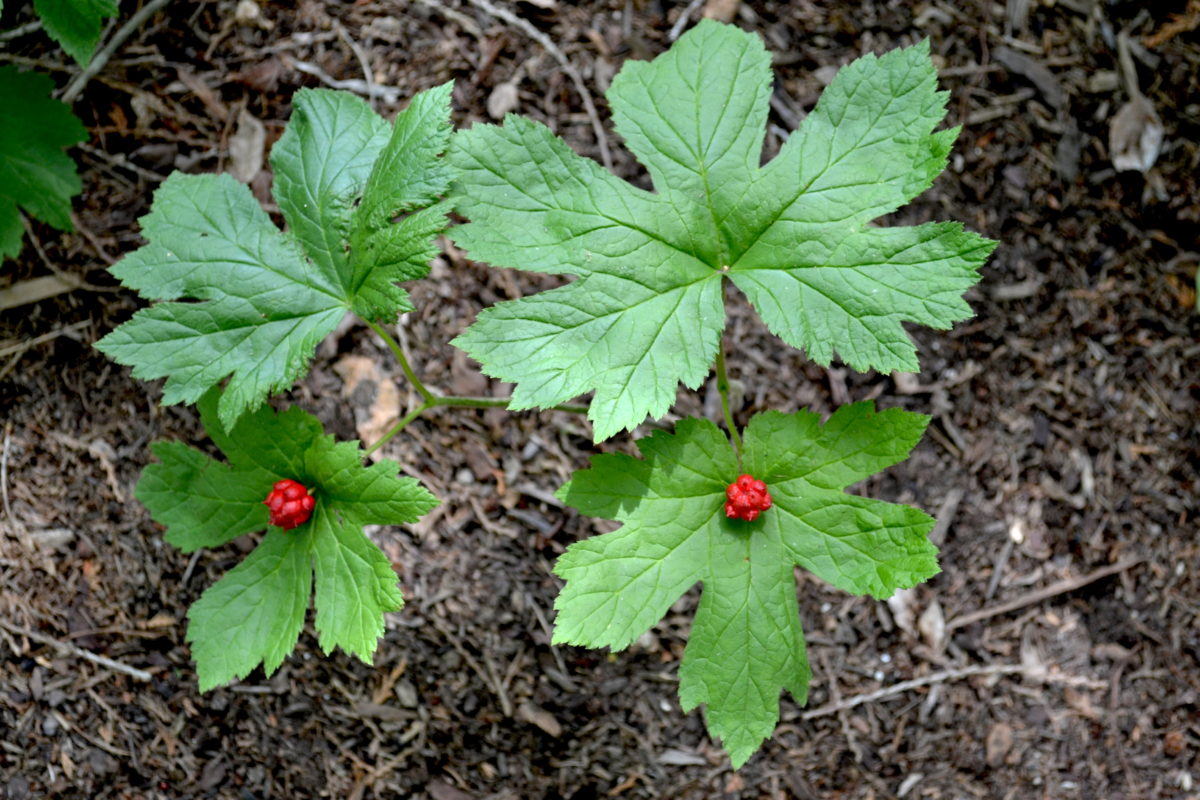
The Herbal Academy: How did your journey as an herbalist begin? What gave you a desire to become an herbalist?
Erika Galentin: I was raised in both a medical and gardening family, so as a child, I had exposure to a generational commitment to both helping people and growing plants. My great-grandfather, grandfather, and uncle are all medical doctors and my grandparents and parents were avid gardeners.
That being said, I was raised in a suburban/urban environment, one that was generally detached from wild spaces. It was during my first undergrad degree at the University of Oregon in Eugene where I was first exposed to what I termed ‘the barefoot way of life.’ It was wild and green everywhere, and I was surrounded by a community that was focused on organic farming, local economy, and natural healing. Before that, I had never even heard of people using plants for medicine!
My degree at the University of Oregon quickly shifted from a major in psychology to a major in anthropology with a focus on medical anthropology. I was learning about a ‘plant-based’ lifestyle from both my surrounding environment and community as well as from studying differing worldviews of health and disease from various cultures around the world.
Plus, I had a really cool roommate, Katie, who gave me my first book on essential oils, and after that, I was hooked! From there, I started taking herb classes with a local herbalist in Eugene, reading as much as I possibly could, and infusing and decocting and consuming any medicinal herbs I could get my hands on! It was as if the herbs had attached to my solar plexus and were guiding me towards them… and they still are!
The Herbal Academy: How has your herbal journey changed over time? What herbal education did you have before you went for your degree in Herbal Medicine from the University of Wales and the Scottish School of Herbal Medicine?
Erika Galentin: After I graduated from the University of Oregon in 2001, I knew that I wanted to continue my herbal education, although I wasn’t sure what form it was meant to take. I knew that I wanted to become a clinical herbalist, but was unsure of the path I needed to take to get there. I had looked around at various herb schools in the U.S. when the herbalist I had been studying with offered me an opportunity to work with her for a few weeks in the Highlands of Scotland.
Once I was there, I discovered that in the U.K. one could receive a University degree in Medical Herbalism which would allow me to apply to the National Institute of Medical Herbalists (I had always wondered what the NIMH stood for!), that there were clinical training hours required (a lot of them), and that at the end of my degree and after acceptance to NIMH I would be able practice as a Medical Herbalist under the protection of U.K. laws.
This was the path that appealed to me most… for me, it was the most legitimate route to take. So, I applied to the Scottish School of Herbal Medicine in Glasgow, Scotland, and after a grueling interview (thanks Keith Robertson), was accepted into their 4-year program. I succeeded in completing that intense mission in 2006, and on the way, also qualified as a massage therapist and clinical aromatherapist.
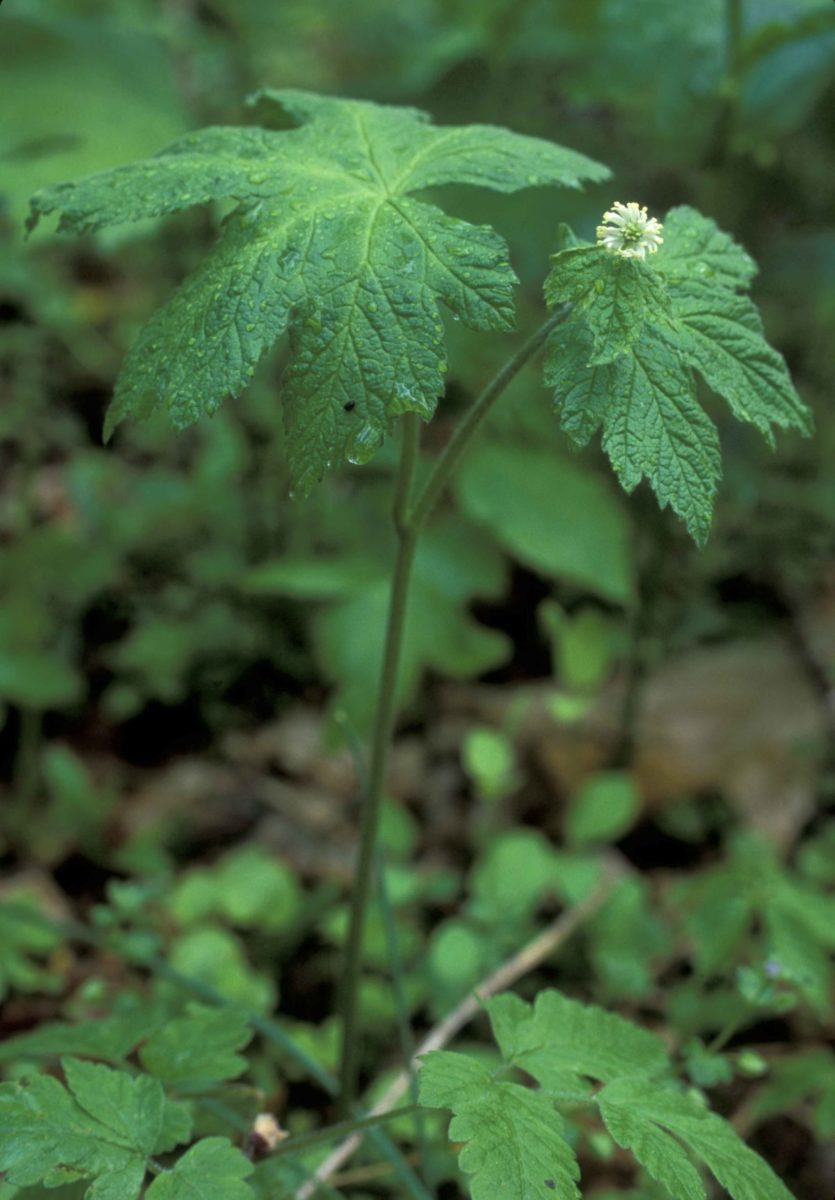
The Herbal Academy: After you completed your degree, you had a clinical practice in Scotland in for several years. How does your practice as an herbalist in the U.S. differ from practicing as an herbalist in the U.K.?
Erika Galentin: Oh my, it is so different (and language is everything), but it is also really similar in some ways. As a medical herbalist in the U.K., I was legally allowed to diagnose, treat, prescribe, and prevent disease. The language that I learned, and hence the therapeutic rationale that I was exposed to, reflected this.
I had patients, not clients. I wrote prescriptions. I practiced phlebotomy and took urine samples, measured blood pressure, tested cranial nerves, etc. Although the Scottish School of Herbal Medicine focused on a physiological therapeutic model, as opposed to a pathology-focused or phytotherapeutic model, we used this ‘practice of medicine’ terminology freely, and it definitely shaped my clinical perspectives and experiences.
Returning to the U.S. was tough, as I knew that I was not going to legally be able to practice as a medical herbalist in the same fashion that I had in the U.K. I knew it would take time to learn the ‘culture’ of clinical herbalism in the U.S. and the first thing that had to change was my language. I could no longer ‘diagnose,’ ‘treat,’ and ‘prescribe.’
What is interesting about language is that it shapes worldview. And in changing my language, by necessity, I also began to embrace a deeper understanding about clinical efficacy of herbs. As I began to speak and write about them using this different language (words like support, nourish, stimulate, restore, balance, etc.) I began to realize that the ‘practice of medicine’ that I was legally trying to avoid, was in essence, not what I was trained for in the first place. Herbalism is not the ‘practice of medicine’ and rightly so. I am now more clinically focused on life, on physiology, on the vital force, rather than on disease and symptom management.
The Herbal Academy: Please share a little bit about your involvement with the Advanced Herbal Course. Who do you think would most benefit from this course?
Erika Galentin: The Advanced Course was my first project with the Herbal Academy, and it was a game-changer for me! Marlene had assembled an already impressive team who presented me with a rough outline of what they were looking for and then just let me run with it. My team and I, including Jane Metzger and Ayo Ngozi, flushed out Unit and Lesson outlines, recruited contributors to team up with us to write and present content (and some really fantastic ones too, like Steven Foster, Bevin Clare, Anne McIntyre, Matthew Wood, and even some of my colleagues from the U.K.).
We also wrote and presented lessons ourselves, so there was a lot of researching, writing, editing, revising, and emailing! It is a massive and collaborative work of art. The Advanced Herbal Course really takes our Introductory Herbal Course and Intermediate Herbal Course to the next level. One of my main goals for this course, being academic by nature, was to ensure that the lessons being presented to our students were challenging, substantiated, discursive, and focused on both tradition and therapeutic rationale.
For example, there is a huge emphasis on primary research. However, we also wanted to capture the various ‘voices’ of the herbalists from around the U.S. and U.K. that were contributing to the project as well as the diversity of traditions that have shaped their experiences as herbalists. This is definitely not a course for someone who is just starting out in herbalism. It is a course for individuals wanting to exercise their critical thinking skills and develop a deeper therapeutic rationale and clinical approach, for continuing professional development, as well as an opportunity for individuals in the medical professions interested in learning about the use of herbs within a clinical environment. It is also a solid course for individuals wanting to become clinical herbalists!!
The Herbal Academy: As the Herbal Academy’s Course Development Director, what is your vision for the school’s future programs and what can students expect to see coming to the Academy?
Erika Galentin: I am really excited about supporting the Herbal Academy in coming up with a bit of something for everyone. We are looking forward to adding new courses to our catalog with the intention of keeping them focused on specific subjects, having them be of shorter duration than our current courses, and most importantly, keeping them affordable.
One of the things I love about working with the Herbal Academy (and there are many) is the mission to keep online herbal education as accessible as possible to the widest range of people possible. So, these mini-courses will focus on a variety of subjects at a variety of learning levels. I don’t want to spoil any surprises, but I will say we have some fantastic, fun, and unique programs coming out in 2017! Stay tuned!
The Herbal Academy: What are your best tips for others seeking professional careers in herbalism?
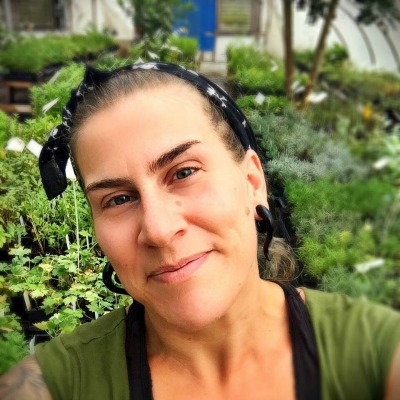 Erika Galentin: Some of the best advice I ever received was from Keith Robertson, FNIMH on my very first day at the Scottish School of Herbal Medicine. He said, “Don’t think for a minute that it is you that has chosen the plants, for it is the plants who have chosen you.” I think of these words when I feel doubtful or insecure, or even lonely, on my herbal journey.
Erika Galentin: Some of the best advice I ever received was from Keith Robertson, FNIMH on my very first day at the Scottish School of Herbal Medicine. He said, “Don’t think for a minute that it is you that has chosen the plants, for it is the plants who have chosen you.” I think of these words when I feel doubtful or insecure, or even lonely, on my herbal journey.
The path of the herbalist is not straightforward. It is bendy and twisty and gruelling at times. It is, however, profoundly fulfilling and joyous. I will leave you with another quote, one that means so much to me as an herbalist that I have it tattooed on my back:
“For me, there is only the traveling on paths that have heart, whichever path has heart. It is there that I travel, and the only worthwhile challenge is to traverse its full length.” – Don Juan, The Teachings of Don Juan: A Yaqui Way of Knowledge by Carlos Castaneda (roughly translated from Spanish).
Erika works hard behind the scenes here at the Herbal Academy, and we hope you enjoyed this chance to get to know her a little better! You can explore our Team page to discover the many wonderful people that make the Herbal Academy possible.
Please visit our Courses and Classes Page to explore our current quality educational offerings. To learn more about the exciting courses we have in store here at the Herbal Academy, make sure you subscribe to our email newsletter!

